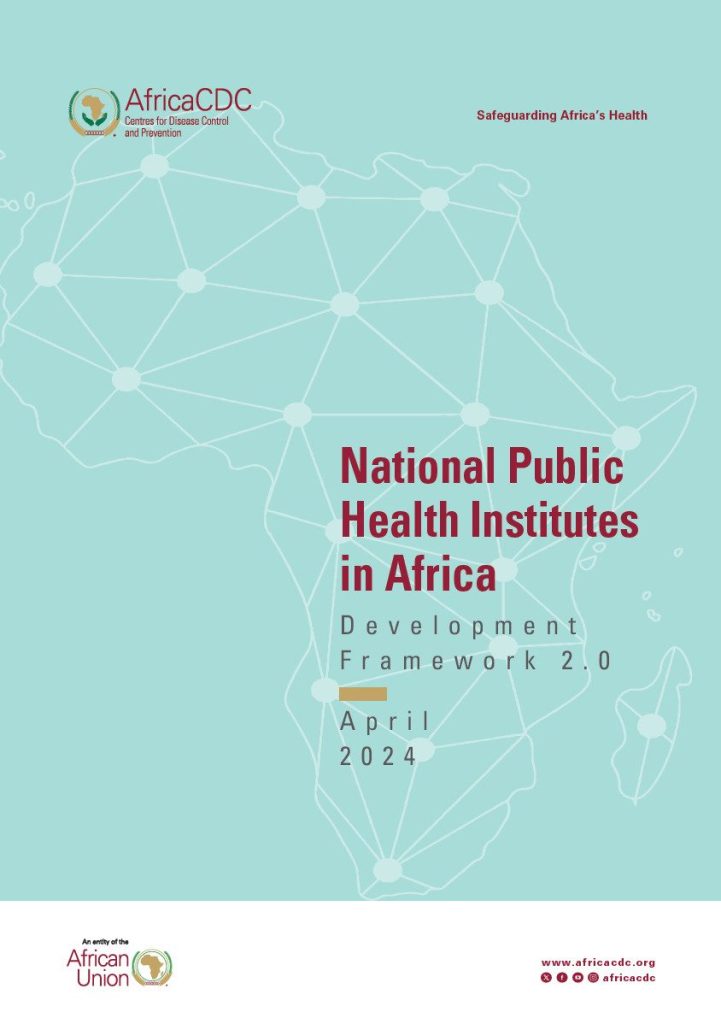Executive Summary
National Public Health Institutes serve as the structural nucleus of the Africa CDC in Member States working to prevent, detect, and ensure adequate response to public health emergencies and support capacity building to reduce disease burden in Member States and the continent. Africa CDC provides support, in collaboration with multiple other stakeholders, to strengthen the capacities of NPHI to perform critical public health functions. With fully established and functional NPHIs, countries can coordinate and network to respond promptly to epidemic-prone diseases and efficiently manage resources.
NPHIs are national-level institutions that lead and coordinate public health functions, including surveillance, emergency preparedness and response, public health research, and public health workforce development. The key attributes include commitment to transparency and accountability, use of evidence for decisionmaking, development of the workforce, and ensuring financial sustainability. While the Ministry of Health is usually the lead for policy decisions related to health, the NPHI plays a critical role in generating, synthesizing, and interpreting data, and using this information to make recommendations, to support the Ministry to make informed policy and program decisions.
As of December 2023, the number of Member States with fully established NPHIs was 23(42%), with 19 (34%) in the process of having one, and 13 (24%) not having started the process of establishing an NPHI. Even fully established NPHIs, however, require strengthening and a continuous process of improvement.
Africa CDC advocates for an NPHI that is a single entity responsible for the coordination and implementation of core public health functions including surveillance, laboratory diagnosis, outbreak investigation and response, workforce development, public health research, program monitoring, and evidence-based policy direction. However, a modified approach can serve as an option, where several government agencies that are responsible for various public health functions create a network or platform to improve coordination and the leveraging of scarce resources across various agencies.
In its first edition of the Framework for the Development of NPHIs in Africa, Africa CDC has outlined the core functions, operational models, and legal mandates necessary for NPHIs to thrive. This edition provides detailed guidance on essential components such as infrastructure, human resources, equipment, logistics, governance, and monitoring and evaluation (M&E). These elements are crucial for the successful establishment and sustainable operation of NPHIs, which are envisioned as Centres of Excellence for public health in Africa.
This document, now enriched with additional insights into the characteristics of NPHI Centers of Excellence, intended to serve as a strategic resource for Member States
